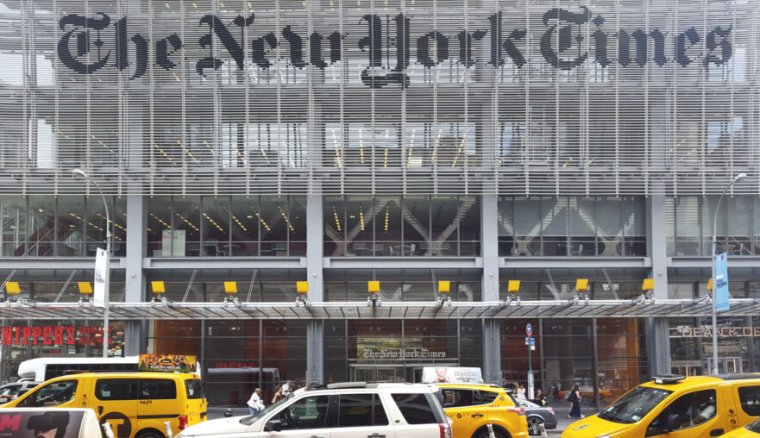
OpenAI is now boldly claiming that The New York Occasions “paid somebody to hack OpenAI’s merchandise” like ChatGPT to “arrange” a lawsuit in opposition to the main AI maker.
In a court filing Monday, OpenAI alleged that “100 examples wherein some model of OpenAI’s GPT-4 mannequin supposedly generated a number of paragraphs of Occasions content material as outputs in response to person prompts” don’t replicate how regular folks use ChatGPT.
As an alternative, it allegedly took The Occasions “tens of 1000’s of makes an attempt to generate” these supposedly “extremely anomalous outcomes” by “focusing on and exploiting a bug” that OpenAI claims it’s now “dedicated to addressing.”
In response to OpenAI this exercise quantities to “contrived assaults” by a “employed gun”—who allegedly hacked OpenAI fashions till they hallucinated pretend NYT content material or regurgitated coaching information to copy NYT articles. NYT allegedly paid for these “assaults” to assemble proof to help The Occasions’ claims that OpenAI’s merchandise imperil its journalism by allegedly regurgitating reporting and stealing The Occasions’ audiences.
“Opposite to the allegations within the criticism, nevertheless, ChatGPT will not be in any means an alternative to a subscription to The New York Occasions,” OpenAI argued in a movement that seeks to dismiss the vast majority of The Occasions’ claims. “In the actual world, folks don’t use ChatGPT or every other OpenAI product for that function. Nor may they. Within the abnormal course, one can not use ChatGPT to serve up Occasions articles at will.”
Within the submitting, OpenAI described The Occasions as enthusiastically reporting on its chatbot developments for years with out elevating any issues about copyright infringement. OpenAI claimed that it disclosed that The Occasions’ articles have been used to coach its AI fashions in 2020, however The Occasions solely cared after ChatGPT’s reputation exploded after its debut in 2022.
In response to OpenAI, “It was solely after this fast adoption, together with studies of the worth unlocked by these new applied sciences, that the Occasions claimed that OpenAI had ‘infringed its copyright[s]’ and reached out to demand ‘business phrases.’ After months of discussions, the Occasions filed swimsuit two days after Christmas, demanding ‘billions of {dollars}.'”
Ian Crosby, Susman Godfrey companion and lead counsel for The New York Occasions, informed Ars that “what OpenAI bizarrely mischaracterizes as ‘hacking’ is solely utilizing OpenAI’s merchandise to search for proof that they stole and reproduced The Occasions’s copyrighted works. And that’s precisely what we discovered. Actually, the dimensions of OpenAI’s copying is far bigger than the 100-plus examples set forth within the criticism.”
Crosby informed Ars that OpenAI’s submitting notably “would not dispute—nor can they—that they copied tens of millions of The Occasions’s works to construct and energy its business merchandise with out our permission.”
“Constructing new merchandise isn’t any excuse for violating copyright regulation, and that’s precisely what OpenAI has performed on an unprecedented scale,” Crosby mentioned.
OpenAI argued that the courtroom ought to dismiss claims alleging direct copyright, contributory infringement, Digital Millennium Copyright Act violations, and misappropriation, all of which it describes as “legally infirm.” Some fail as a result of they’re time-barred—in search of damages on coaching information for OpenAI’s older fashions—OpenAI claimed. Others allegedly fail as a result of they misunderstand honest use or are preempted by federal legal guidelines.
If OpenAI’s movement is granted, solely claims of vicarious copyright infringement and trademark dilution would doubtless stay.
But when The Occasions wins—and it would—OpenAI could also be compelled to wipe ChatGPT and begin over.
“OpenAI, which has been secretive and has intentionally hid how its merchandise function, is now asserting it’s too late to deliver a declare for infringement or maintain them accountable. We disagree,” Crosby informed Ars. “It is noteworthy that OpenAI doesn’t dispute that it copied Occasions works with out permission throughout the statute of limitations to coach its newer and present fashions.”
OpenAI didn’t instantly reply to Ars’ request to remark.
